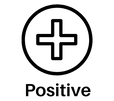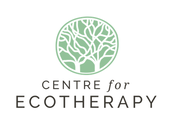|
Think Productive work on communication, culture and strategy at a ninja away day workshop around the fire.
Who are they?
Founded by best-selling author Graham Allcott (How to be a Productivity Ninja), Think Productive help transform the productivity and wellbeing of leading organisations around the world, through practical, human and straight to the point time management and productivity training and workshops. Think Productive are a close team, a mix of trainers (called Productivity Ninjas) and head office staff.
Why a team workshop in the wild?
Think Productive’s MD, Elena Kerrigan has been to one of our leadership campfire sessions. Inspired by that she wants to bring the benefits of being in the great outdoors to an upcoming Ninjas’ Away Day, to help her team connect, and to talk about strategy and business issues. Because Think Productive’s team usually work remotely, communicating with each other using several channels - including email, Slack and phone, it was essential to create the right space where they could come together to talk about challenges, ideas, and business questions and discuss them openly, and especially to look at:
After an initial call to discuss strategy and ideas, we hold the day at a nature reserve in London, that has both indoor and outdoor spaces, and importantly a fire circle. The ultimate aim of the session is to help Think Productive:
What we did
During the morning, we make a fire outdoors and encourage Think Productive's team members to take a seat, relax, and to talk and share with each other. This is followed by immersive outdoor activities that create space for meaningful conversations and creative thinking about their business questions. Because working as a team is all about communication, and communicating better always begins with listening, we start with a couple of listening exercises, the first based around everyone telling their story from an unusual perspective, in pairs. The second exercise, also in pairs, is in silence: it’s a different kind of communication activity we call Camera. One person in the pair leads their partner who has their eyes shut, on a short walk, only opening their eyes when their colleague is ready to show them beautiful views and scenes. It’s surprising and builds empathy and awareness, and is a practical experience of leading and being led. Before moving on, we ask the team to reflect on what they’ve just done: What was that like? What can you learn from it? Anything you can take back to the office? The team share their pleasure in the exercise and their insights. Then we move to the main activity - working on the first business question together: “What do you need to know about communicating better as a team?” The instructions are simple:
They all go off, when they come back they journal their thoughts and ideas. We always find this exercise to be very powerful: it turns nature into a mirror that helps people find their own insights. It helps teams with meaning-making, in a way that brings out creative and useful answers and ideas on big, wide, and strategic questions. When the group return, they share their objects, and their thoughts and ideas, and write them on cards, which we share with the whole group. A lot of good stuff comes up: some surprising and insightful responses from each person.
Surfacing ideas from the group on Think Productive's Ninjas Away Day.
Pic by Rosie Linford
What happened
Think Productive are already really good at communicating with each other. What surfaces are some nuanced and unexpected issues about how communication can be improved, for example by sharing more contextual information from HQ to the Ninjas. And more involvement. It’s such rich and useful input that the group decide to continue this conversation, and leave the second question - of how they can help their customers - for the indoors session later in the afternoon. As the conversation deepens and expands, MD, Elena, really listens, and responds with ideas, solutions and actions. It was interesting to see how much came up, how quickly, and how creative Think Productive are, and that they are happy to have these conversations. "Being outside four walls really helped us, as an already close group, to connect in a deeper way. Being in nature gave us permission to be more open and honest, with ourselves and with what we were hearing," she says. When the outdoor session is over, we break for lunch. In the afternoon, the team head indoors for presentations and discussions on various business issues, taking the energy and what they've learned from the morning with them.
What difference does being outside make?
In a follow up call I ask what Think Productive have got from the morning, and if being outside in nature made a difference. Think Productive’s Business Development manager tells me: “It felt really different to any of our other away days. "Being outside quickly got us into the right mindset and ready to brainstorm in the afternoon. The environment made a difference to the team and how we related to each other. Nature clearly breaks down hierarchy, and helped us think more creatively. “We’re already very productive together, but we were also very productive on the day… it was different to sitting around a table: it made us think about how important the environment is, and the different perspective that gives you.”
What impact has the day had on the company?
Think Productive have made some interesting changes and improvements in the way they communicate, as a result of the day:
Some of the ideas and benefits that the group got from the day.
Did the day achieve its aims?
The group connected, and they communicated. They shared some really interesting and deep conversations about the way they work and communicate, and have made some positive changes as a result. There was a willingness to engage and share, and there was a really great feeling throughout the session. A particularly good telling point: no one got their phone out! The biggest thing I valued from the day was connection. Space to connect with myself, with nature, and with each other. As a busy team all juggling different schedules, projects, deadlines, clients and commitments, disconnection can sometimes creep up on us. We're all pretty good at communicating efficiently, but when we're disconnected that's when the mis-alignment and misunderstandings can creep in.
Grace Marshall, Ninja, Think Productive
At School of the Wild, we run team away days and creative campfires for organisations of all sizes. Read more case studies here, or get in touch here. Comments are closed.
|
Author & CuratorNigel Berman is the founder of School of the Wild. Archives
March 2024
|
Leaders |
About Us
Support |
|

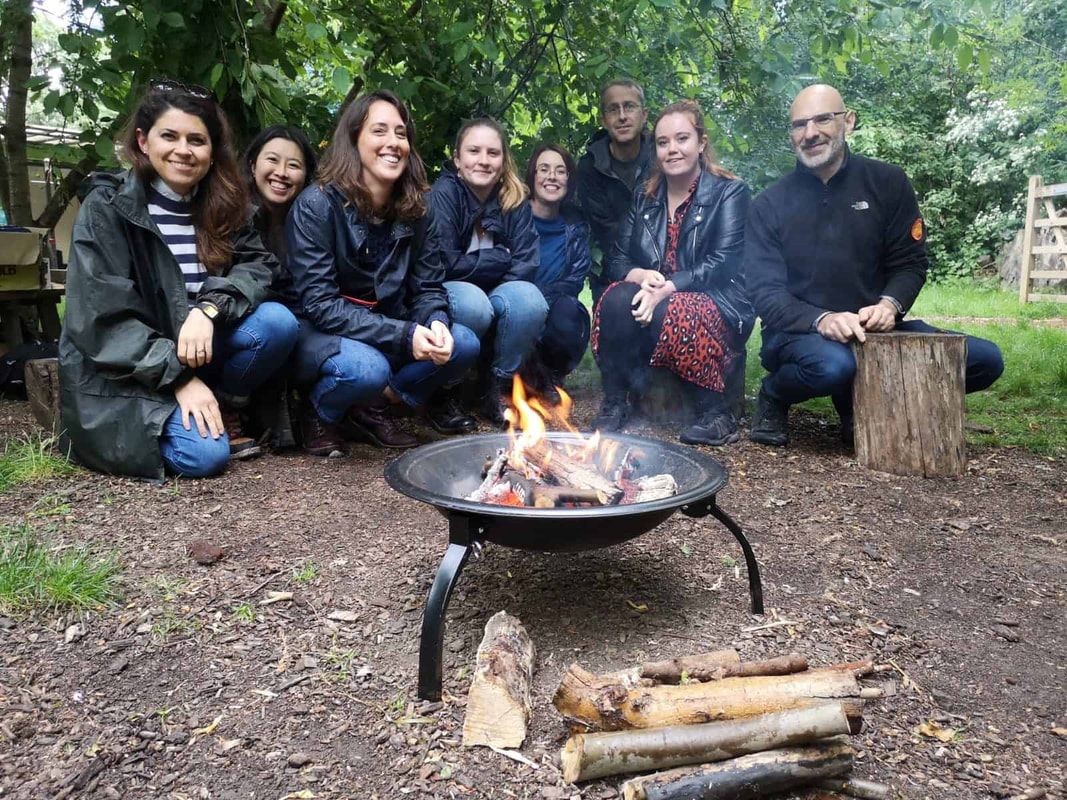
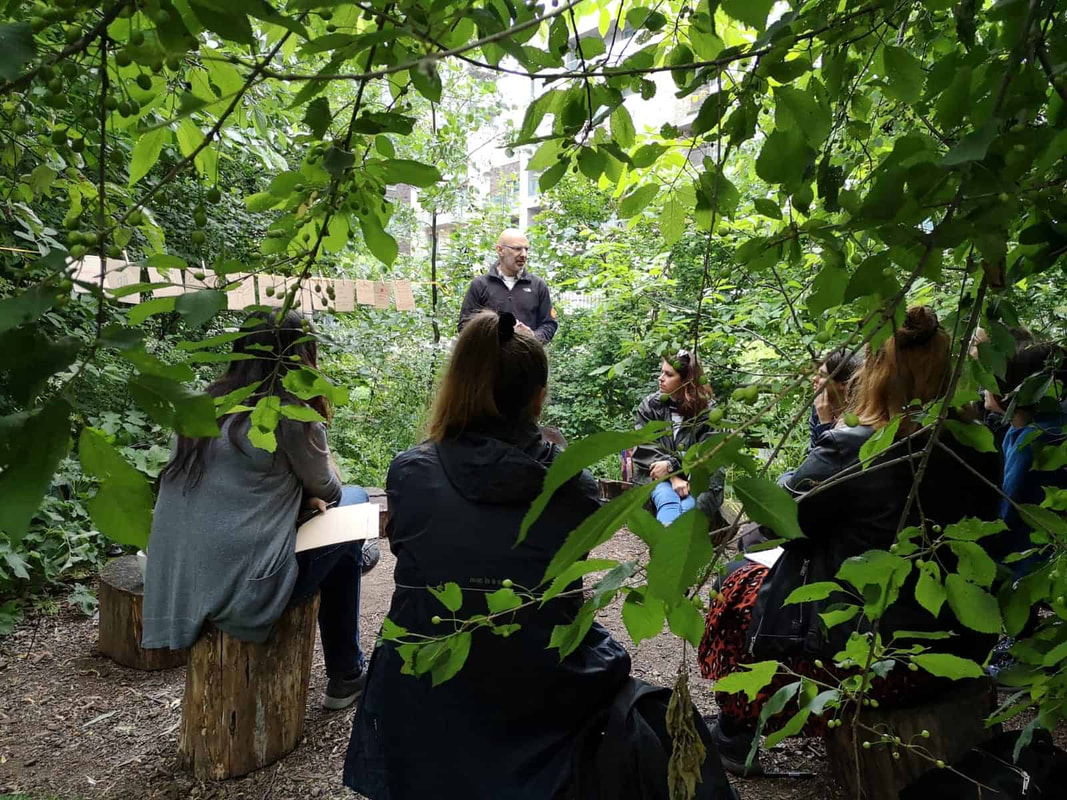
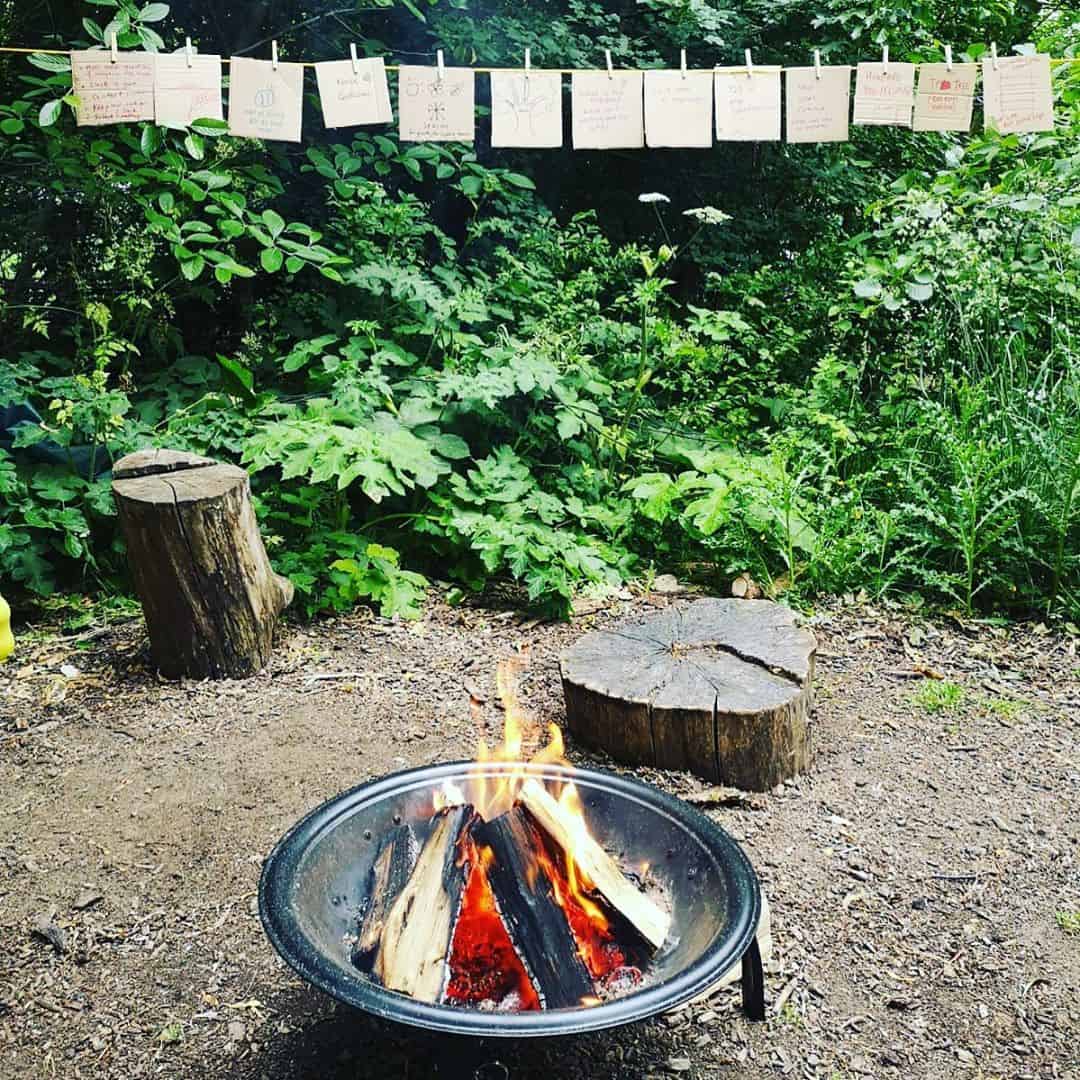
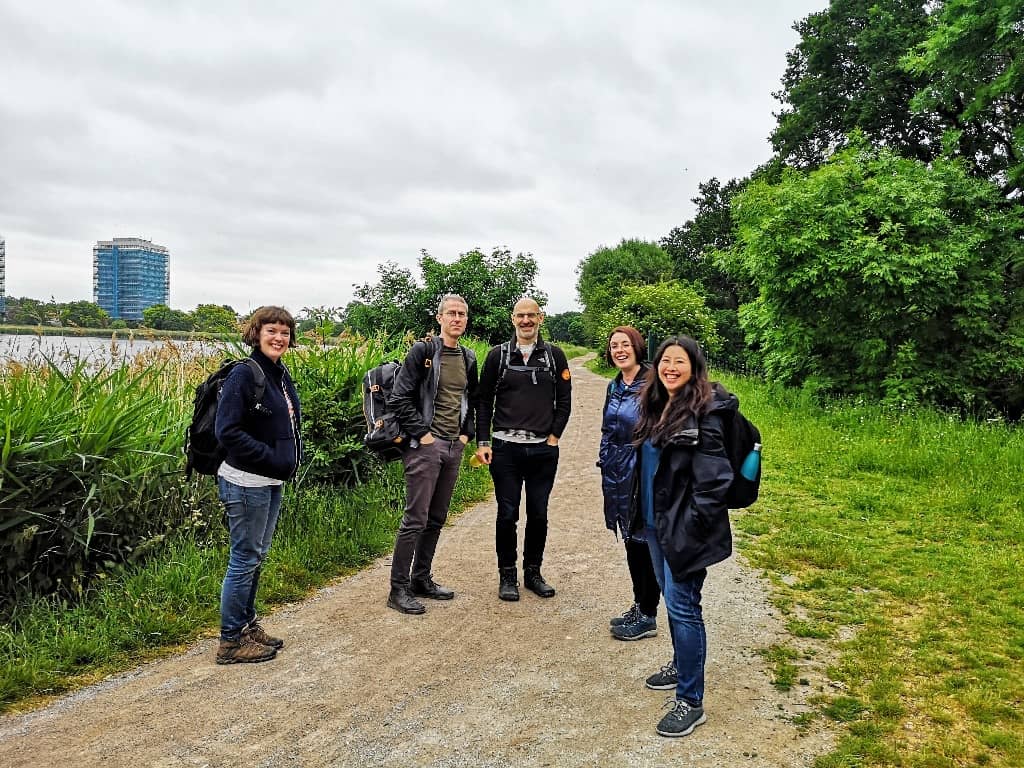
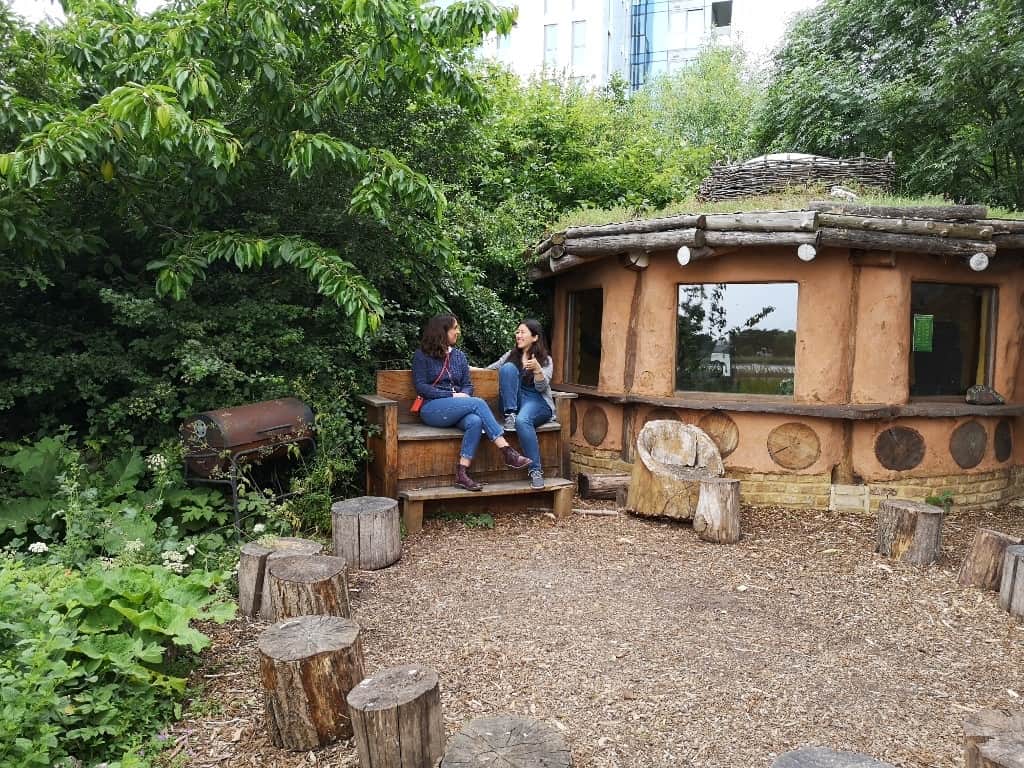
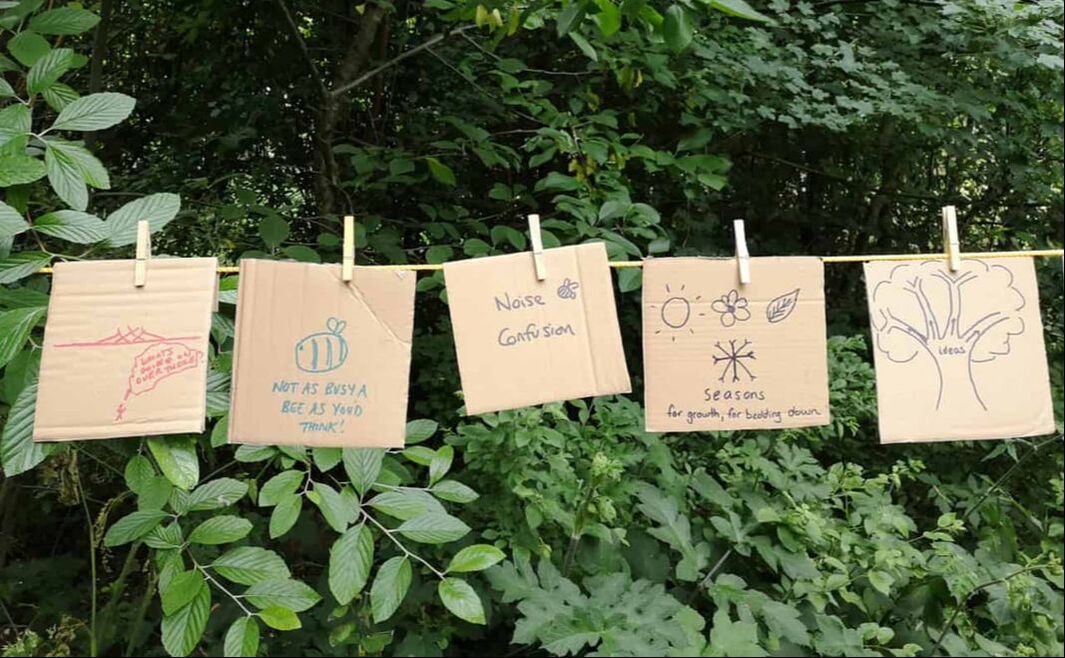
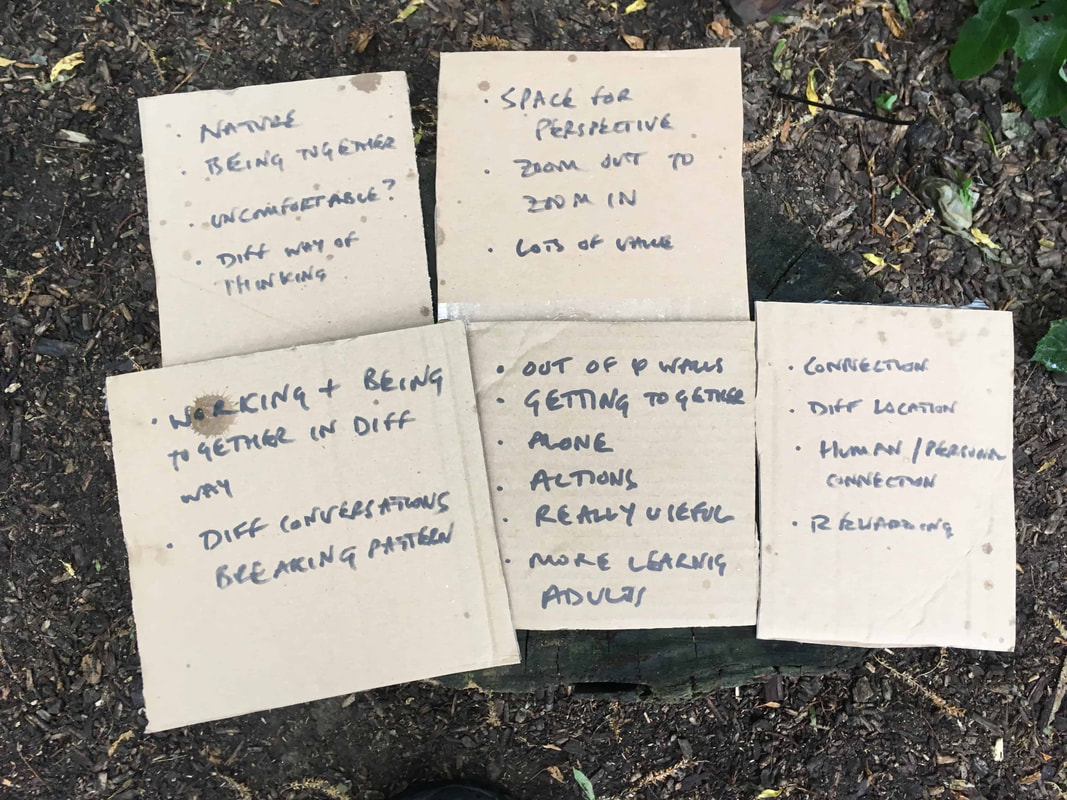
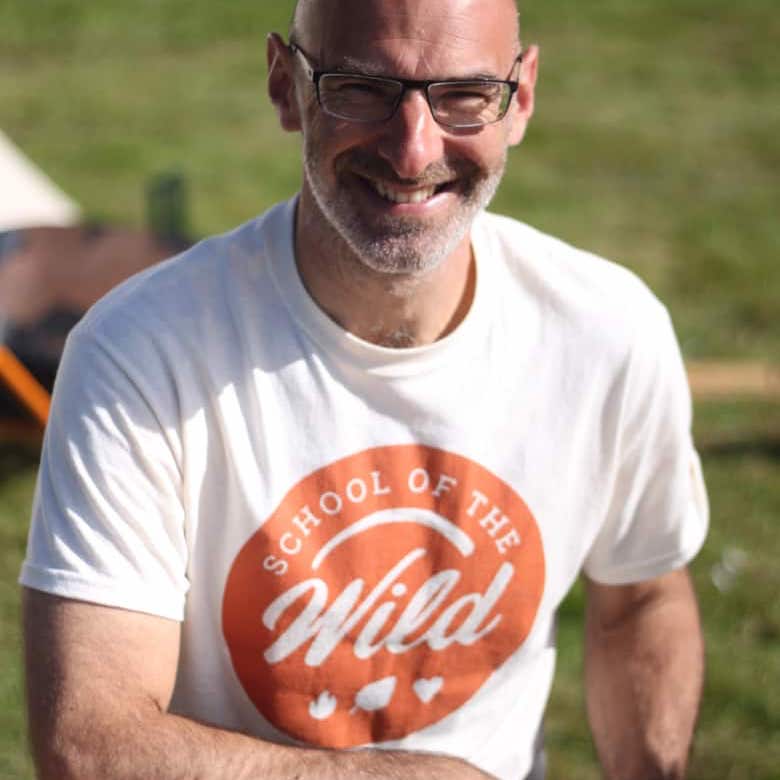
 RSS Feed
RSS Feed
